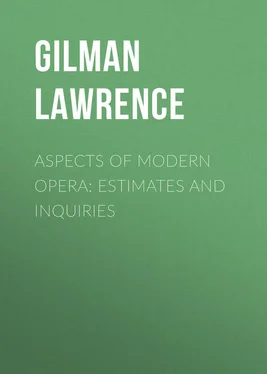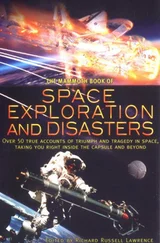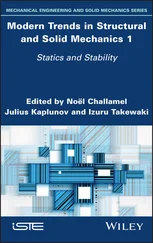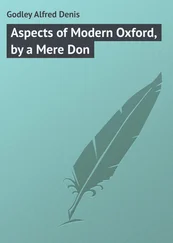Lawrence Gilman - Aspects of Modern Opera - Estimates and Inquiries
Здесь есть возможность читать онлайн «Lawrence Gilman - Aspects of Modern Opera - Estimates and Inquiries» — ознакомительный отрывок электронной книги совершенно бесплатно, а после прочтения отрывка купить полную версию. В некоторых случаях можно слушать аудио, скачать через торрент в формате fb2 и присутствует краткое содержание. Жанр: foreign_home, music_dancing, foreign_antique, foreign_prose, на английском языке. Описание произведения, (предисловие) а так же отзывы посетителей доступны на портале библиотеки ЛибКат.
- Название:Aspects of Modern Opera: Estimates and Inquiries
- Автор:
- Жанр:
- Год:неизвестен
- ISBN:нет данных
- Рейтинг книги:3 / 5. Голосов: 1
-
Избранное:Добавить в избранное
- Отзывы:
-
Ваша оценка:
- 60
- 1
- 2
- 3
- 4
- 5
Aspects of Modern Opera: Estimates and Inquiries: краткое содержание, описание и аннотация
Предлагаем к чтению аннотацию, описание, краткое содержание или предисловие (зависит от того, что написал сам автор книги «Aspects of Modern Opera: Estimates and Inquiries»). Если вы не нашли необходимую информацию о книге — напишите в комментариях, мы постараемся отыскать её.
Aspects of Modern Opera: Estimates and Inquiries — читать онлайн ознакомительный отрывок
Ниже представлен текст книги, разбитый по страницам. Система сохранения места последней прочитанной страницы, позволяет с удобством читать онлайн бесплатно книгу «Aspects of Modern Opera: Estimates and Inquiries», без необходимости каждый раз заново искать на чём Вы остановились. Поставьте закладку, и сможете в любой момент перейти на страницу, на которой закончили чтение.
Интервал:
Закладка:
In those days when the impetus of a pristine enthusiasm drove the more intelligent order of opera-goers to performances of Wagner, it was a labour of love to learn to know and understand the texts of his obscure and laboured dramas; and even the guide-books, which were as leaves in Vallombrosa, were prayerfully studied. But to-day there are no Wagnerites. We are no longer impelled by an apostolic fervour to delve curiously into the complex genealogy and elaborate ethics of the "Ring," and it is no longer quite clear to many slothful intelligences just what Tristan and Isolde are talking about in the dusk of King Mark's garden. There will always be a small group of the faithful who, through invincible and loving study, will have learned by heart every secret of these dramas. But for the casual opera-goer, granting him all possible intelligence and intellectual curiosity, they cannot but seem the reverse of crystal-clear, logical, and compact. A score of years ago those who cared at all for the dramatic element in opera, and the measure of whose delight was not filled up by the vocal pyrotechny which was the mainstay of the operas of the older répertoire, found in these music-dramas their chief solace and satisfaction. Wagner reigned then virtually alone over his kingdom. The dignity, the imaginative power, and the impressive emotional sweep of his dramas, as dramas, offset their obscurity and their inordinate bulk; and always their splendid investiture of music exerted, in and of itself, an enthralling fascination. And that condition of affairs might have continued for much longer had not certain impetuous young men of modern Italy demonstrated the possibility of writing operas which were both engrossing on their purely dramatic side and, in their music, eloquent with the eloquence that had come to be expected of the modern opera-maker. Moreover, these music-dramas had the incalculable merit, for our time and environment, of being both swift in movement and unimpeachably obvious in meaning. Thereupon began the reign of young Italy in contemporary opera. It was inaugurated with the "Cavalleria Rusticana" of Mascagni and the "I Pagliacci" of Leoncavallo; and it is continued to-day, with immense vigour and persistence, by Puccini with all his later works. The sway of the composer of "Tosca," "Bohème," and "Madame Butterfly" is triumphant and wellnigh absolute; and the reasons for it are not elusive. He has selected for musical treatment dramas that are terse and rapid in action and intelligible in detail, and he has underscored them with music that is impassioned, incisive, highly spiced, rhetorical, sometimes poetic and ingenious, and pervadingly sentimental. Moreover, he possesses, as his most prosperous attribute, that facility in writing fervid and often banal melodies to the immediate and unfailing effect of which, in the words of Mr. Henry T. Finck, I have alluded. As a sensitive English critic, Mr. Vernon Blackburn, once very happily observed, Puccini is "essentially a man of his own generation … the one who has caught up the spirit of his time, and has made his compact with that time, in order that he should not lose anything which a contemporary generation might give him."
It is a curious and striking truth that the chief trouble with the representative musical dramatists who have built, from the standpoint of system, upon the foundational stones that Wagner laid, is not, as the enemies and opponents of Bayreuth used to charge, an excess of drama at the expense of the music, but – as was the case with Wagner himself (a fact which I have elsewhere in this volume attempted to demonstrate) – an excess of music at the expense of the drama: in short, the precise defect against which reformers of the opera have inveighed since the days of Gluck. With Richard Strauss this musical excess is orchestral; with the modern Italians it implicates the voice-parts, and is manifested in a lingering devotion to full-blown melodic expression achieved at the expense of dramatic truth, logic, and consistency. In this, Puccini has simply, in the candid phrase of Mr. Blackburn, "caught up the spirit of his time, and made his compact with that time." That is to say, he has, with undoubted artistic sincerity, played upon the insatiable desire of the modern ear for an ardent and elemental kind of melodic effect, and upon the acquired desire of the modern intelligence for a terse and dynamic substratum of drama. His fault, from what I hold to be the ideal standpoint in these matters, is that he has not perfectly fused his music and his drama. There is a sufficiently concrete example of what I mean – an example which points both his strength and his weakness – in the second act of "Tosca," where he halts the cumulative movement of the scene between Scarpia and Tosca , which he has up to that point developed with superb dramatic logic, in order to placate those who may not over-long be debarred from their lyrical sweetmeats; but also – for it would be absurd to charge him with insincerity or time-serving in this matter – in order that he may satisfy his own ineluctable tendency toward a periodical effusion of lyric energy, which he must yield to even when dramatic consistency and logic go by the board in the process; when, in short, lyrical expression is supererogatory and impertinent. So he writes the sentimental and facilely pathetic prayer, "Vissi d'arte, vissi d'amore," dolcissimo con grande sentimento : a perfectly superfluous, not to say intrusive, thing dramatically, and a piece of arrant musical vulgarity; after which the current of the drama is resumed. We have here, in fact, nothing more nor less respectable than the old-fashioned Italian aria of unsavoury fame: it is merely couched in more modern terms.
The offence is aggravated by the fact that Puccini, in common with the rest of the Neo-Italians, is at his best in the expression of dramatic emotion and movement, and at his worst in his voicing of purely lyric emotion, meditative or passionate. In its lyric portions his music is almost invariably banal, without distinction, without beauty or restraint – when the modern Italian music-maker dons his singing-robes he becomes clothed with commonness and vulgarity. Thus in its scenes of amorous exaltation the music of "Tosca," of "Madame Butterfly" (recall, in the latter work, the flamboyant commonness of the exultant duet which closes the first act), is blatant and rhetorical, rather than searching and poignant. Puccini's strength lies in the truly impressive manner in which he is able to intensify and underscore the more dramatic moments in the action. At such times his music possesses an uncommon sureness, swiftness, and incisiveness; especially in passages of tragic foreboding, of mounting excitement, it is gripping and intense in a quite irresistible degree. Often, at such moments, it has an electric quality of vigour, a curious nervous strength. That is its cardinal merit: its spare, lithe, closely-knit, clean-cut, immensely energetic orchestral enforcement of those portions of the drama where the action is swift, tense, cumulative, rather than of sentimental or amorous connotation. Puccini has, indeed, an almost unparalleled capacity for a kind of orchestral commentary which is both forceful and succinct. He wastes no words, he makes no superfluous gestures: he is masterfully direct, pregnant, expeditious, compact. Could anything be more admirable, in what it attempts and brilliantly contrives to do, than almost the entire second act of "Tosca," with the exception of the sentimental and obstructive Prayer? How closely, with what unswerving fidelity, the music clings to the contours of the play; and with what an economy of effort its effects are made! Puccini is thus, at his best, a Wagnerian in the truest sense – a far more consistent Wagnerian than was Wagner himself.
It is in "Tosca" that he should be studied. He is not elsewhere so sincere, direct, pungent, telling. And it is in "Tosca," also, that his melodic vein, which is generally broad and copious rather than fine and deep, yields some of the true and individual beauty which is its occasional, its very rare, possession – for example, to name it at its best, the poetic and exceedingly personal music which accompanies the advancing of dawn over the house-tops of Rome, at the beginning of the last act: a passage the melancholy beauty and sincere emotion of which it would be difficult to overpraise.
Читать дальшеИнтервал:
Закладка:
Похожие книги на «Aspects of Modern Opera: Estimates and Inquiries»
Представляем Вашему вниманию похожие книги на «Aspects of Modern Opera: Estimates and Inquiries» списком для выбора. Мы отобрали схожую по названию и смыслу литературу в надежде предоставить читателям больше вариантов отыскать новые, интересные, ещё непрочитанные произведения.
Обсуждение, отзывы о книге «Aspects of Modern Opera: Estimates and Inquiries» и просто собственные мнения читателей. Оставьте ваши комментарии, напишите, что Вы думаете о произведении, его смысле или главных героях. Укажите что конкретно понравилось, а что нет, и почему Вы так считаете.












